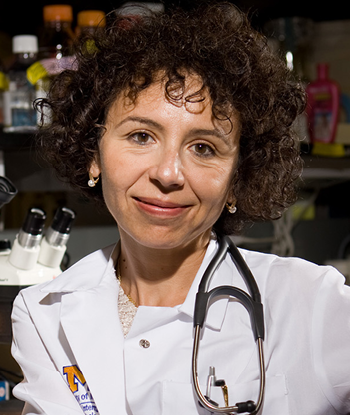“This year has showcased the many strengths of the Department of Internal Medicine and the immense value of our missions of research, education and patient care. Through our creativity, innovation, dedication, and teamwork, we were able to mobilize and provide vital care on the frontlines while continuing to pursue new answers and solutions that will make a difference for many in the future.” - Rodica Pop-Busui, MD, PhD. Learn more about Dr. Pop-Busui.
Clinical & Health Services Research Connection
Internal Medicine has a sizable and accomplished history in health services research. Researchers from our department make up the largest group within U-M’s Institute for Healthcare Policy & Innovation (IHPI). Because our health services research footprint is so vast, we have the perfect opportunity to stimulate the development of clinical research projects that address pressing topics already being investigated by our IHPI colleagues, from healthy aging to the opioid epidemic. As our clinical trialists identify effective interventions, our outcomes researchers can examine them in clinical practice. And if an intervention falls short in practice, our trialists can compare alternatives. With our health services and clinical researchers working together, we can make quicker advancements to improve patient care.
In addition, the Department of Internal Medicine has strengthened their pre-award services. Seven Clinical Trials Support Units were created to optimize the department's ability to conduct clinical trial research and to become a true leader in providing meaningful findings that can reshape the clinical care of our patients. Also, having highly specialized personnel helps investigators and their teams with administrative tasks so they can dedicate more time to performing the actual scientific and research components of a project.





